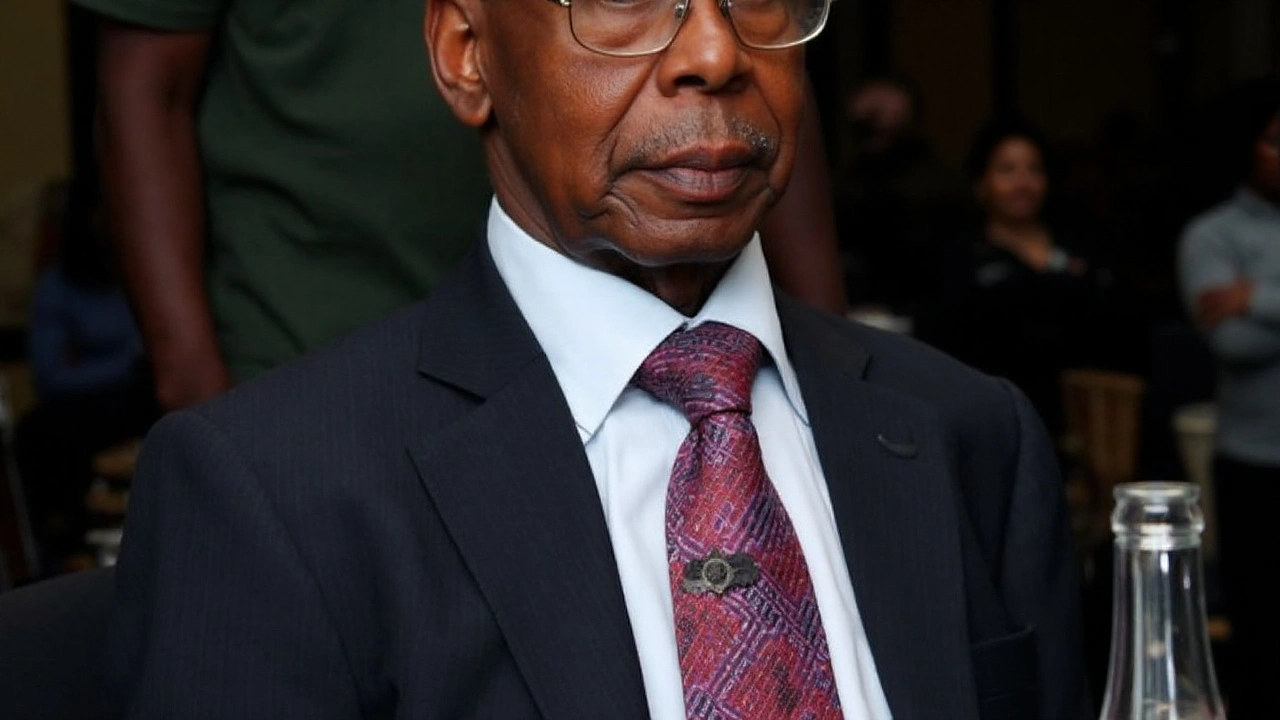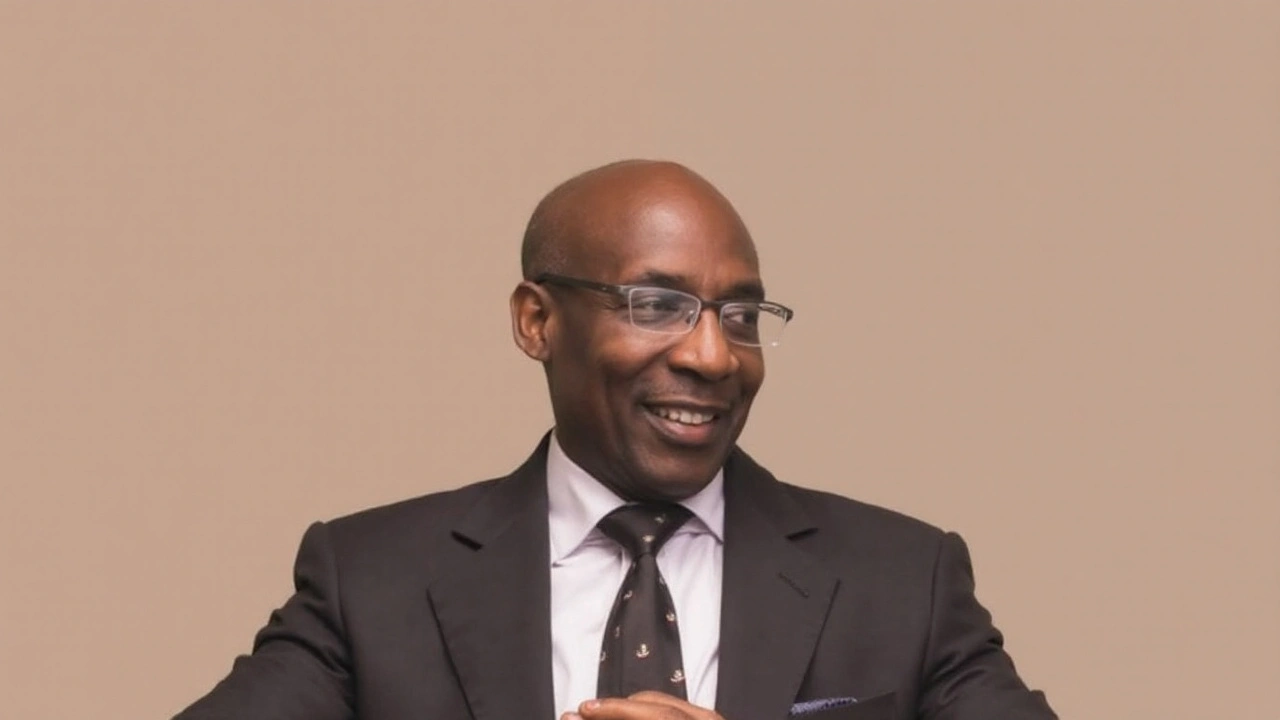Background of the Directline Assurance shareholder conflict
Directline Assurance, best known for its dominance in Kenya's public service vehicle (PSV) insurance market, has been a flashpoint for one of the country’s most publicised corporate battles in recent years. Founded in the early 2000s, the company quickly grew to command close to two‑thirds of the PSV sector, thanks to aggressive underwriting and a strong distribution network that reached matatu operators across the nation.
In 2023, the ownership structure began to shift when businessman SK Macharia, a figure with deep ties to media and construction, started acquiring a substantial block of Directline shares through his investment vehicle, Royal Media Services. Macharia’s push was framed as a strategic move to expand his portfolio and bring what he termed “fresh leadership” to an insurer that, in his view, had become complacent.
Existing shareholders, however, pushed back. They argued that Macharia’s rapid acquisition violated shareholder agreements that required a first‑right of refusal. The disagreement quickly escalated into a legal contest, with the High Court stepping in during mid‑2024 to issue an injunction that barred Macharia and any of his affiliates from meddling in Directline’s day‑to‑day management. Justice Francis Gikonyo, who presided over the case, emphasized that the insurer must be treated as an independent legal entity until the dispute was fully resolved.
While the injunction held, Macharia turned to public platforms to rally support, leveraging his ownership of Royal Media Services to air cautionary advertisements warning potential policyholders about what he described as “mismanagement” at Directline. The court deemed those adverts harmful to the insurer’s reputation and ordered them withdrawn, adding another layer to the mounting tension.
Behind the headlines, the insurer’s financials remained solid. By September 2025, Directline reported having paid out Sh1.47 billion in claims, a figure that underscored its operational resilience despite the looming ownership drama. Yet, market share data revealed a slight erosion: from 64.95% in 2023 to 59.79% in 2024, hinting that the uncertainty was beginning to affect customer confidence.

Court actions, police involvement and regulatory response
On Monday, 23 September 2025, the simmering dispute boiled over in a very visible way. Armed with a small entourage, Macharia entered Directline’s Nairobi headquarters at Hazina Towers, publicly announced that he had taken over the company, and proceeded to fire senior executives, including Chief Executive Officer Sammy Kanyi. CCTV footage captured the moment Macharia marched past the reception desk, gesturing for staff to vacate restricted zones and insisting on immediate control of the insurer’s operations.
Eyewitnesses described the scene as chaotic. Employees were escorted out of conference rooms, phones were snatched, and the building’s security team was visibly overwhelmed. The incident flouted the 2024 injunction that explicitly prohibited Macharia from interfering with Directline’s management or accessing its premises without court permission.
In the aftermath, Directline’s legal team filed an urgent police report, triggering a joint response from the Kenya Police Service and the Directorate of Criminal Investigations (DCI). The DCI, however, faced a legal hurdle: a prior court order that barred any investigative searches related to the dispute. On 30 September 2025, the High Court extended that ban, citing concerns that further police action could inflame an already volatile situation and jeopardise the insurer’s ability to serve its millions of policyholders.
Meanwhile, the Insurance Regulatory Authority (IRA) moved quickly to calm markets. IRA Chief Executive Godfrey Kiptum issued a statement assuring the public that all policies issued by Directline remained valid and that the regulator was monitoring the situation closely. He emphasized that the insurer’s claim‑handling capacity was unaffected, urging PSV operators and individual policyholders not to panic.
Directline’s own communications echoed the IRA’s tone. In a press release posted on the same day as the office takeover, the company declared that it was “fully operational” and that its “governance and service delivery standards remain intact.” The release highlighted the insurer’s continued ability to underwrite new policies, process renewals, and settle legitimate claims, reinforcing confidence among transport operators who rely on its coverage for daily operations.
Legal analysts note that the extension of the DCI ban signals the court’s desire to keep the dispute within a purely civil arena, rather than allowing it to spiral into a law‑enforcement matter. “The judiciary is sending a clear message,” said Miriam Otieno, a Nairobi‑based corporate lawyer. “While the parties can litigate over ownership rights, the state will not permit physical confrontations that risk public safety or the stability of a key financial sector.”
Macharia’s counsel, veteran lawyer Kamau Kuria, responded to the court’s decision by filing a motion for a review, arguing that the ban hampered the DCI’s ability to investigate potential wrongdoing tied to the alleged illegal entry. Kuria also reiterated Macharia’s claim that Directline’s current board had usurped control through “unlawful share transfers.” The lawyer warned that, should the injunction remain, his client would consider “all lawful avenues” to protect his investment.
Beyond the courtroom, the episode has prompted a broader discussion about corporate governance in Kenya. Stakeholders from the Kenya Private Investors Association (KPIA) and the Institute of Directors (IoD) have called for clearer mechanisms to resolve shareholder deadlocks without resorting to public disruptions. In a recent round‑table, they urged the government to consider legislative reforms that would empower the Financial Sector Conduct Authority (FSCA) — the successor to the IRA — to act as an intermediary in high‑stakes insurance disputes.
For the average Kenyan commuter, the saga may feel distant, but its impact is tangible. Matatu owners cite concerns over premiums rising if the insurer’s market share continues to slide. Some have already begun exploring alternative insurers, though Directline’s extensive network and reputation for swift claims payments remain strong pull factors.
The next steps in the legal battle are expected to involve a full hearing on the ownership claim, scheduled for early 2026. Both sides have signalled readiness to present extensive documentary evidence, including share purchase agreements, board resolutions, and communications with regulatory bodies. Until that hearing, the court’s extended ban on DCI searches stands as a temporary firewall, keeping law‑enforcement tools at bay while the corporate fight plays out in the legal arena.
As the story unfolds, watchers will be keen to see whether the Kenyan judiciary can enforce its orders without resorting to further force, and whether Directline’s confidence‑building measures will hold its market share steady in a sector that underpins the daily lives of thousands of commuters.

Amrinder Kahlon
September 24, 2025 AT 01:37Oh great, another boardroom drama – just what the Kenyan insurance sector needed. The way Macharia waltzed in with his entourage feels like a bad sequel to a corporate thriller.
Abhay patil
September 24, 2025 AT 03:00Everyone’s busy pointing fingers but the real issue is continuity of service for commuters. Directline’s claim payouts remain solid and that should calm any panic. Regulators stepping in is a good sign.
Amber Brewer
September 24, 2025 AT 04:24The injunction issued by Justice Gikonyo is a classic example of the court attempting to preserve the status quo during a shareholder dispute.
By explicitly barring Macharia from interfering with daily management, the judge recognised the potential systemic risk to the PSV insurance market.
This approach protects policyholders by ensuring that claim processing and underwriting activities are not disrupted by law‑enforcement actions.
Moreover, it signals to other corporations that the judiciary will enforce procedural boundaries rather than tolerate forceful takeovers.
From a financial perspective, Directline’s reported Sh1.47 billion in claims payouts demonstrates operational resilience despite the turbulence.
However, the dip in market share from 64.95 % to 59.79 % suggests that confidence among matatu owners is eroding.
Regulators, such as the IRA and the upcoming FSCA, are therefore justified in issuing reassuring statements to prevent a panic‑driven exodus.
The legal counsel for Macharia, Kamau Kuria, argues that the ban hampers investigative capacity, but the court’s priority remains the protection of public interest.
Litigation will likely continue to focus on alleged violations of first‑right‑of‑refusal provisions and the legitimacy of recent share transfers.
Should the court ultimately find that the board acted unlawfully, remedies could include forced share buy‑backs or a restructuring of governance.
In the meantime, Directline should continue to emphasise its claim‑handling efficiency, as this is the most tangible metric for policyholders.
Industry observers also recommend that Kenya develop a statutory mechanism for mediating high‑stakes insurance disputes, perhaps empowering the FSCA as an intermediary.
Such a framework would reduce the likelihood of future physical confrontations at corporate headquarters.
Finally, stakeholders must monitor premium trends closely, as any upward pressure could accelerate the shift toward alternative insurers.
The coming hearing in early 2026 will be a critical juncture for determining the ultimate ownership structure and ensuring market stability.
Kim Coulter
September 24, 2025 AT 05:47Kenya’s financial institutions are a pillar of national pride, and no outsider should be allowed to hijack them with brute force. This saga reflects a deeper struggle over who truly owns the destiny of our economy. Until the courts restore order, the nation’s resilience will be tested.
Michelle Toale-Burke
September 24, 2025 AT 07:10😱 The drama feels like a blockbuster movie, and we’re all stuck in the front row! Every twist makes my heart race, and I can’t help but wonder how long this roller‑coaster will last. 😩
Amy Paradise
September 24, 2025 AT 08:34Hey folks, just a heads‑up that Directline’s claim system is still ticking over smoothly 😊. If you’re a matatu owner, keep an eye on renewal notices but no need to panic right now. Their network remains one of the strongest in the country.
Janette Cybulski
September 24, 2025 AT 09:57Thanks for the reassurance! It’s good to know the service isn’t falling apart. I’ll pass the info to my driver friends so they can sleep easier.
Mildred Alonzo
September 24, 2025 AT 11:20Interesting how the court prefers civil routes over police involvement. This keeps the market stable while the legal battle proceeds.
Elizabeth Bennett
September 24, 2025 AT 12:44Exactly, and that’s why regulators stepping up is crucial. They can act as a neutral party to keep both shareholders accountable and protect policyholders.
linda menuhin
September 24, 2025 AT 14:07lol, this whole thing feels like a chess game where the pieces keep moving but the board never changes. maybe the real winner is the public who finally gets better service after all this noise.
Jeff Abbott
September 24, 2025 AT 15:30Looks like you finally noticed the board’s real agenda.
Quinton Merrill
September 24, 2025 AT 16:54Anyone tracking how premiums might shift after this? 🤔 If Directline loses market share, we could see price hikes across the board.
Linda Lawton
September 24, 2025 AT 18:17Sure, the “price hikes” are just the elite’s way of squeezing the common folk while they argue over boardrooms. It’s all part of the same hidden agenda.